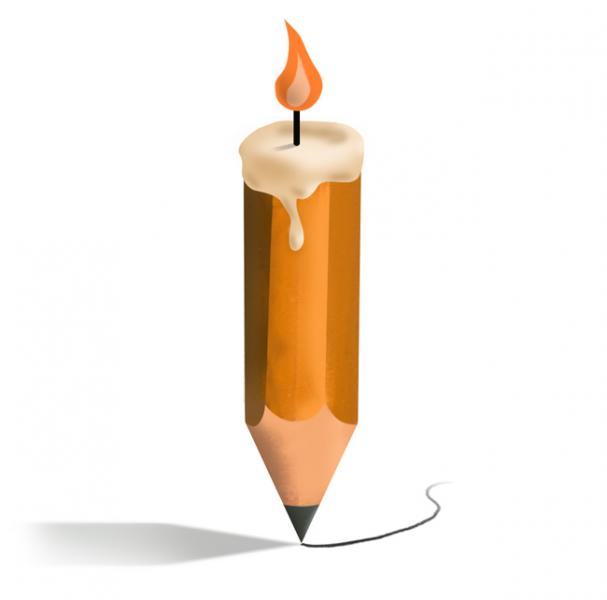One Day

“The poet says, Here, let me show you something. That is, let me help you to see
something as you have not seen it before.”
Before I launch into a typical day of teaching, I want to include a couple of passages I use every year to illustrate the idea of gestures, their importance, how vital they are, how we can’t live without them. I want the kids to know what they do counts, every day, and that literature is serious, as they are...that writing and reading, studying help create them, define them, and validate them. All the while allowing me to teach what I think is important: Those things that keep me alive.
from ARCHANGEL:
Onyx and split cedar and bronze vessels lowered into still water: these things I offer. Porphyry, teakwood, jasmine, and myrrh: these gifts I bring. The sheen of my sandals is dulled by the dust of cloves. My wings are waxed with nectar. My eyes are diamonds in whose facets red gold is mirrored. My face is a mask of ivory: Love me. Listen to my promises.
Cold water will drip from the intricately chased designs of the bronze vessels. Thick-lipped urns will sweat in the fragrant cellars. The orchards never weary of bearing on my islands. The very leaves give nourishment. The banked branches never crowd the paths. The grapevines will grow unattended. The very seeds of the berries are sweet nuts. Why do you smile? Have you never been hungry?
...The eaves of the roof are so wide that nothing of the rain comes into the rooms but its scent. Mats of perfect cleanness cover the floor. The fire is cupped in black rock and sustained on a smooth breast of ash. Have you never lacked shelter?
 Where then, has your life been touched? My pleasures are as specific as they are everlasting. The sliced edges of a fresh ream of laid paper, cream, stiff, rag-rich. The freckles of the closed eyelids of a woman attentive in the first white blush of morning. The ball diminishing well down the broad green throat of the first at Cape Ann. The good catch, a candy sun slating the bleachers. The fair at the vanished poorhouse. The white arms of girls dancing, taffeta, white arms violet in the hollows music its ecstasies praise the white wrists of praise the white arms and the white paper trimmed the Euclidean proof of Pythagoras’ theorem its tightening beauty the iridescence of an old copper found in the salt sand. The microscopic glitter in the ink of the letters of words that are your own. Certain moments, remembered or imagined, of childhood. Three-handed pinochle by the brown glow of the stained-glass lampshade, your parents out of their godliness silently wishing you to win. The Brancusi room, silent. Pines and Rocks, by Cézanne; and The Lace-Maker in the Louvre hardly bigger than your spread hand
Where then, has your life been touched? My pleasures are as specific as they are everlasting. The sliced edges of a fresh ream of laid paper, cream, stiff, rag-rich. The freckles of the closed eyelids of a woman attentive in the first white blush of morning. The ball diminishing well down the broad green throat of the first at Cape Ann. The good catch, a candy sun slating the bleachers. The fair at the vanished poorhouse. The white arms of girls dancing, taffeta, white arms violet in the hollows music its ecstasies praise the white wrists of praise the white arms and the white paper trimmed the Euclidean proof of Pythagoras’ theorem its tightening beauty the iridescence of an old copper found in the salt sand. The microscopic glitter in the ink of the letters of words that are your own. Certain moments, remembered or imagined, of childhood. Three-handed pinochle by the brown glow of the stained-glass lampshade, your parents out of their godliness silently wishing you to win. The Brancusi room, silent. Pines and Rocks, by Cézanne; and The Lace-Maker in the Louvre hardly bigger than your spread hand
"Such glimmers I shall widen to rivers; nothing will be lost, not the least grain of remembered dust, and the multiplication shall be a thousand fold; love me. Embrace me; come, touch my side, where the honey flows. Do not be afraid. Why should my promises be vain? Jade and cinnamon: do you deny that such things exist? Why do you turn away? Is not my song a stream of balm? My arms are heaped with apples and ancient books; there is no harm in me; no. Stay. Praise me. Your praise of me is praise of yourself; wait. Listen. I will begin again."
I use that story whenever I feel like it. It often takes the kids a while to appreciate it, to wonder at what Updike is after, to explore the story in relation to their own lives. But it always works. For me, especially, the last sentence strikes sparks. One of the delights of teaching is the opportunity to begin again. Each class, each day, each quarter, semester, year. It’s continually dying and being reborn. And having the luxury of refining what I’m teaching, adding new stories, novels, poems. Reading and taking what I think are the best examples of art; holding them up and shouting, Look at this! Isn’t it marvelous? And getting to do the same thing the next class, next day. Praise me. Praise yourself.
Recall the gesture in Salinger’s “For Esme With Love And Squalor.” By sending Sgt. X her dead father’s wristwatch, she saved his life. Saved our lives. Or Marlow’s lie at the end of “Heart Of Darkness”. Gave The Intended something to live by. I know you know all this and I don’t want to be patronizing but to focus on gestures and give them to students with the stories and novels and plays and poems and then by example as often as possible is one damn good reason to continue teaching. (I usually apologize for being condescending early on in each class. Sounding superior is an occupational hazard, I tell them, and call me on it when it happens). The gestures I can make are not life saving(except for me maybe. Although I meet former students who insist I influenced their lives for the better. I probably have, but I don’t dwell on it or, sentimentalist that I am, I’d become incapacitated. Truly). The things I do are often little things; saying hello to every kid I encounter, kidding them gently about how they’re dressed or that I like the purple hair, (which I do and the earrings and piercing, and tattoos. Don’t get huffy, remember the 60s? These kids must find out who they are and pink and green hair does grow out, although the tattoos may be a problem later on). Yesterday entering the school I said hello to a kid who appeared to be pierced everywhere possible. She responded, said, Hi, what do you teach? I told her English. I’ve been living on the streets for two years and want to get my education. I like books. Call me Shadow. I’ll see you later. I hope so, Shadow. Come on in. To those kids in the hall late for any class I usually say, Take your time, it’s only school! I open doors, smile continually, just generally be happy to be there, do what you can. I’m not Mr. Goodsmile, in loafers and Levis, but I want what I do, like anyone, to have meaning and for me teaching is it.
Recommended
Nor’easter
Post-Op Appointment With My Father
Cedar Valley Youth Poet Laureate | Fall 2024 Workshop







